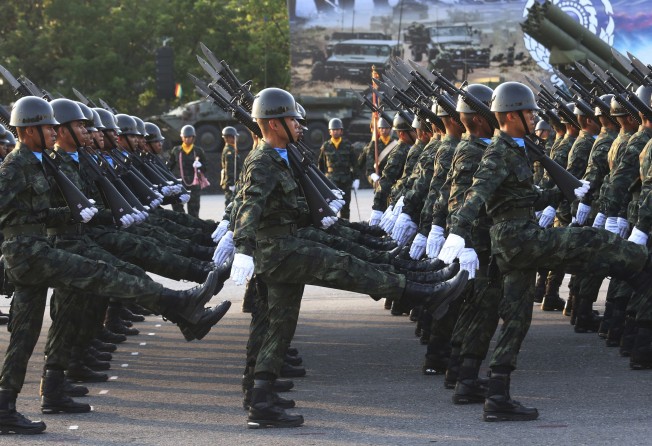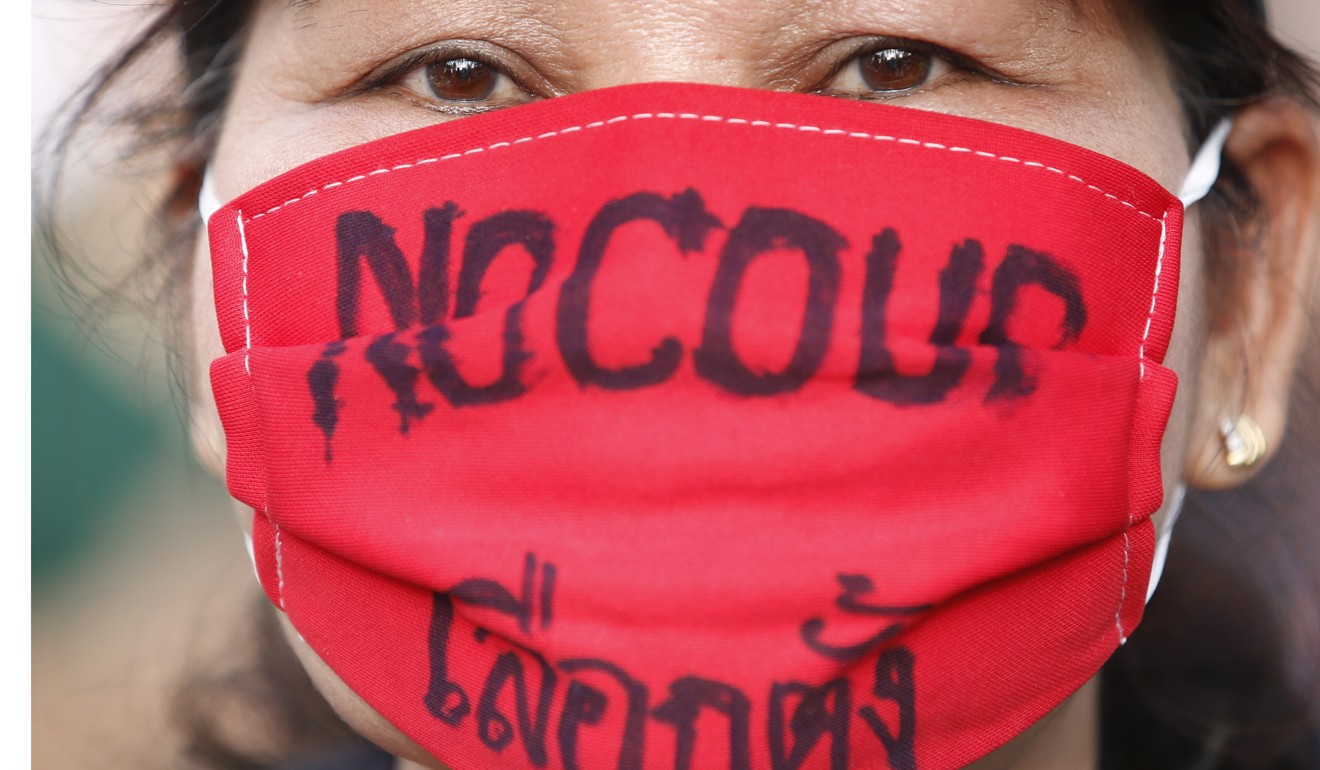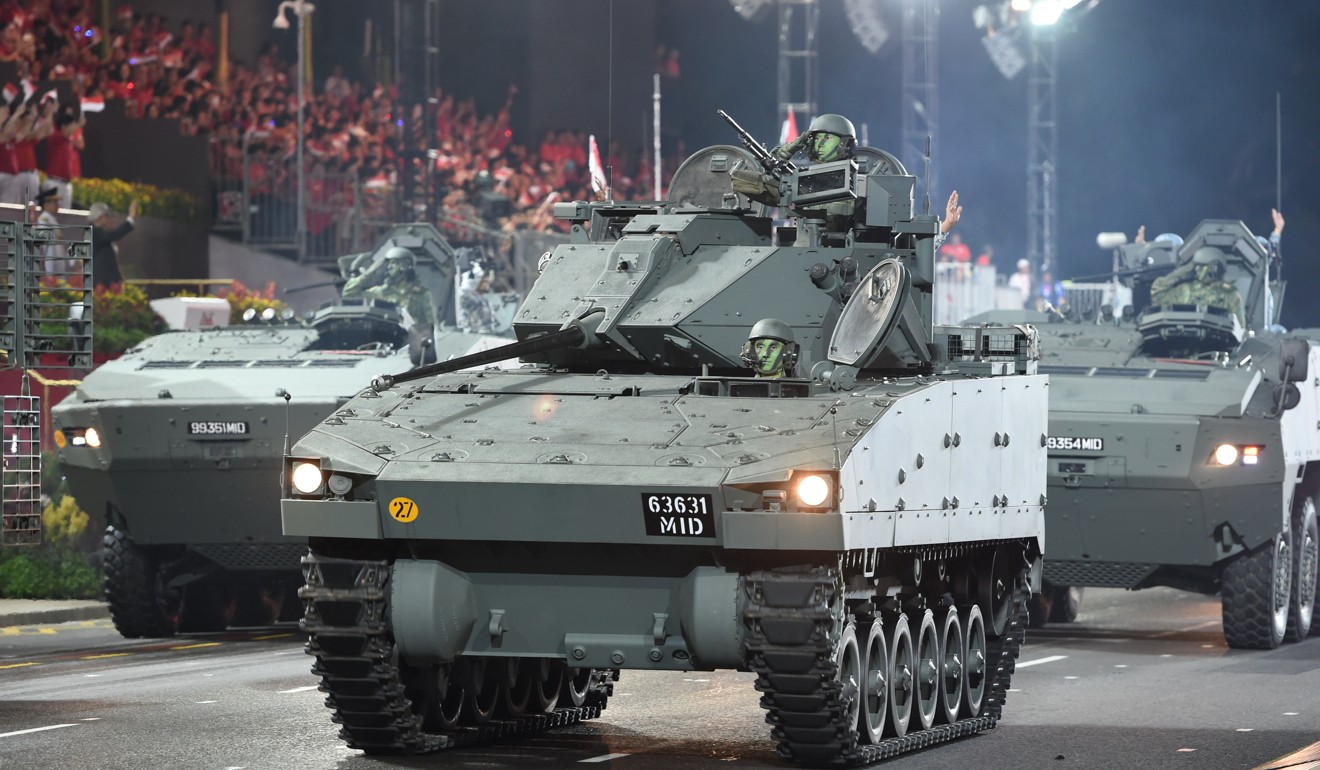Thailand’s junta up in arms over plan to cut military outlay – as neighbours like Singapore and Indonesia spend more
- Public response to Thaksin-aligned party’s plans to reduce army expenditure by 10 per cent and end conscription has been positive
- But Thailand’s US$7.23 billion defence budget for 2019 puts it in step with regional neighbours, who are on a military spending binge

Slash defence spending and end conscription? Such proposals from Thailand’s leading anti-junta political party have had the country’s citizens cooing in agreement ahead of the first elections since a 2014 coup, but some industry analysts say the drastic policy move will be hard to implement amid a military spending binge among the kingdom’s neighbours.
Another stumbling block, they say, is the fierce opposition likely to come from the influential pro-military establishment that will stay in place no matter who wins the March 24 polls.
The Pheu Thai Party, which is behind the proposals, got a taste of things to come on Monday, after army chief Apirat Kongsompong – responding to reporters’ questions – spat venom at the prospect of having his budget cut by the proposed 10 per cent.
“They should listen to this tune – Nak Phandin,” he was quoted as saying, referring to a song that is widely considered incendiary because it was the anthem of right-wing, anti-democracy zealots behind a massacre of student activists in 1976.
Apirat’s comments were widely panned online and he later rescinded an order for army radio stations to play the song twice daily.
Sudarat Keyuraphan, the Pheu Thai leader, meanwhile stood by her party’s policy, saying there was no need for rapid arms procurement at a time of economic uncertainty.
Pheu Thai, aligned with the exiled former prime minister Thaksin Shinawatra, was in power before 2014’s coup, and is seen as the main rival to a powerful pro-junta bloc contesting the polls.
The elections will take place under a new constitution crafted by the junta, which analysts say is designed to make sure the ruling generals led by Prime Minister Prayuth Chan-ocha keep their stranglehold on power, even if their political allies lose out to the populist Pheu Thai at the ballot box.
Defence analysts say Pheu Thai’s proposals – while popular among voters tired of junta rule – are unlikely to pass muster in the post-election political landscape.
For one, the military has statistics on its side, especially if comparisons are made with the defence spending of Thailand’s neighbours. The kingdom’s defence budget for the 2019 financial year was set at 227 billion baht (US$7.23 billion), about 1.4 per cent of gross domestic product.
Singapore, for decades Southeast Asia’s biggest military spender, announced a new budget on Monday in which the defence ministry’s expenditure rose 4.7 per cent to nearly US$11.4 billion, or about 3.4 per cent of GDP.

Indonesia, the region’s most populous nation, has ambitions to match that level of spending. Analysts expect its defence outlay to rise 36 per cent to around US$9.9 billion in 2024 from around US$7.2 billion currently.
Compared with its neighbours, the Thai military can easily argue that they have been financially prudent. Jon Grevatt, a regional defence analyst for intelligence provider Jane’s, said such arguments cannot be dismissed when discussing the kingdom’s defence budget.
“The fact is the military government is well aware of the need to balance spending across the economy. High defence spending increases are not a popular decision,” he said.
According to Grevatt, in recent years the junta has shown a degree of fiscal prudence by “paying only for what it can afford” in military spending – and shunning the use of export credits, which allow the governments of arms-making nations to offer foreign buyers cheap loans to buy their weapons.
And while Prayuth’s five-year-old administration has made big-ticket purchases such as Chinese-made submarines, such procurement has occurred within a period where spending growth for the military has averaged about 4.6 per cent per year – a figure Grevatt said was “quite healthy”.
Still, local political analysts say Pheu Thai’s proposals are arousing interest among the public because of a widespread belief that junta used its time in power to significantly increase military spending.
Apirat’s Nak Phandin comment on Monday sparked angry reactions from Thais on social media.
Many posted messages on Sudarat’s Facebook page supporting both her party’s proposals and her criticism of Apirat’s comments. “As the army chief, he should have been politically neutral,” she said.

“Pheu Thai’s decision to highlight the issue showed it knew exactly what would stir up anti-junta feelings,” said a political analyst who declined to be named. The party is aligned with the mass movement helmed by Thaksin, now in exile with his sister Yingluck, also a former premier.
Parties loyal to the two of them have won every election since 2011.
“It’s a topic that has strong currency during elections … people feel strongly that Prayuth and his fellow generals have done everything they can over the last five years to [increase] defence spending as much as possible. Comparison to international standards is not going to appease anyone,” said the analyst.
Paradorn Pattanathabut, a former chief of the country’s national Security Council who now advises the Pheu Thai party, on Monday said the proposal to cut defence spending was – in contrast to how it was being portrayed by Apirat – in favour of stability in the country.
The diversion of resources would spur economic growth and help internal cohesion, Paradorn was quoted as saying in local media.
Apart from Pheu Thai, other anti-junta parties such as the Future Forward Party – led by billionaire Thanathorn Juangroongruangkit – have also made cutting defence spending a key part of their campaign platform. Also on their agenda is a downscaling of Thailand’s conscription programme, into which some 100,000 men are drafted annually and have to serve terms of up to two years.
These parties say the Royal Thai Army requires urgent and deep institutional reform to ensure generals do not launch putsches each time civilian politicians are mired in crisis.
The military has launched 29 coups over nine decades – 12 successful – and says these actions are solely to safeguard the monarchy and the national interest.